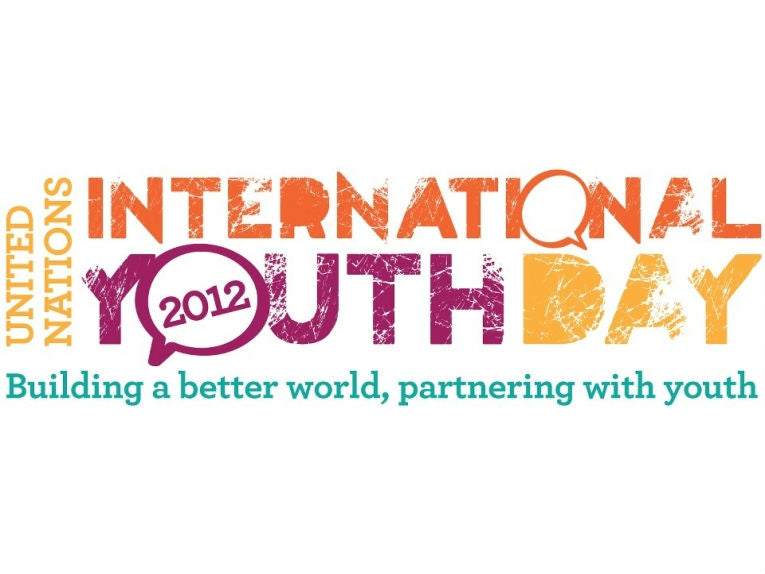In a world where around half of is population is aged 25 or under, it is only right and proper that young people should have a voice and in 1999 the UN General Assembly endorsed a recommendation that from henceforth 12th August would be commemorated as International Youth Day.
The chief reason behind the establishment of International Youth Day was to raise awareness of the issues affecting young people around the world and 15 priority areas were highlighted:
Countries around the world participate in this global event, with many activities taking place that promote the benefits that young people bring to the world. These events include youth conferences on issues such as education and employment, as well as concerts that promote the world's youth, and sporting events, parades and exhibitions that showcase the achievements of young people.
Each year a challenging theme is chosen for International Youth day. In 2011 the theme was "Change Our World", but for 2012 the organisers have chosen, "Building a Better World: Partnering with Youth."
Too many of the world's young people live in poverty and have little chance of realising their full potential in life. Too few of them are gaining the necessary skills, knowledge and confidence to find employment in the rapidly changing job market.
UNESCO, the United Nations Educational, Scientific and Cultural Organisation, plays a lead role in this. Speaking prior to the 2012 International Day, UNESCO's Director General Irina Bokova said, "Young people are the wellspring of ideas for innovation. They are today's thinkers, problem-solvers and catalysts for peace."
Young people are often the world's strongest advocates for dignity and justice, but they need to be heard and included, so they need good jobs, good quality education and access to culture for all.
UNESCO works closely with young people, supporting them in the development of intercultural skills to enable them to live in an age of diversity. The organisation works hard to strengthen educational systems in order to provide young people with relevant inclusive and quality learning, particularly in the areas of technical and vocational education and training.
For reasons of statistical consistency, in UN terms the world's youth is restricted to the age group between 15 and 25 years. This comprises one in six of the human population.
Almost 85% of the world's young people live in developing countries, with approximately 60% living in Asia. A further 23% live in the developing areas of Africa, Latin America and the Caribbean.
This number is rising and by 2025 the number of young people living in developing countries is expected to have grown to 89.5%. It is therefore vital that youth issues feature very high on the agendas of individual countries as they develop their policies.
In recent years there has been increasing urbanisation throughout the world, but in spite of this the majority of young people continue to live in rural areas, chiefly in sub-Saharan Africa, South-East and Southern Asia and Oceania.
To guide the celebrations of the International Youth Day the UN highlights three key issues:
The emphasis is that activities should be fun. Full use should be made of Facebook, Twitter, university newsletters and local newspapers. Local and national radio stations are often willing to cover activities. Public meetings and debates can provide a forum for young people to make contributions on global issues.
Round table discussions among adults and young people can promote intergenerational understanding and youth forums can bring together young people from different backgrounds, helping them to accept each other and popularise a culture of non-violence.
Activities such as concerts by local musicians or exhibitions by local artists can all work to celebrate cultural diversity and bring groups together and raise awareness of youth-related issues.
In his message prior to the 2011 International Youth Day, UN Secretary-General Ban Ki-Moon stressed that the international community must continue to work together to expand the horizons of opportunity for young men and women and to answer their legitimate demands for dignity, development and decent work.
"Failing to invest in our youth," said Ban Ki-Moon, "is a false economy. Investments in young people will pay great dividends in a better future for all."










